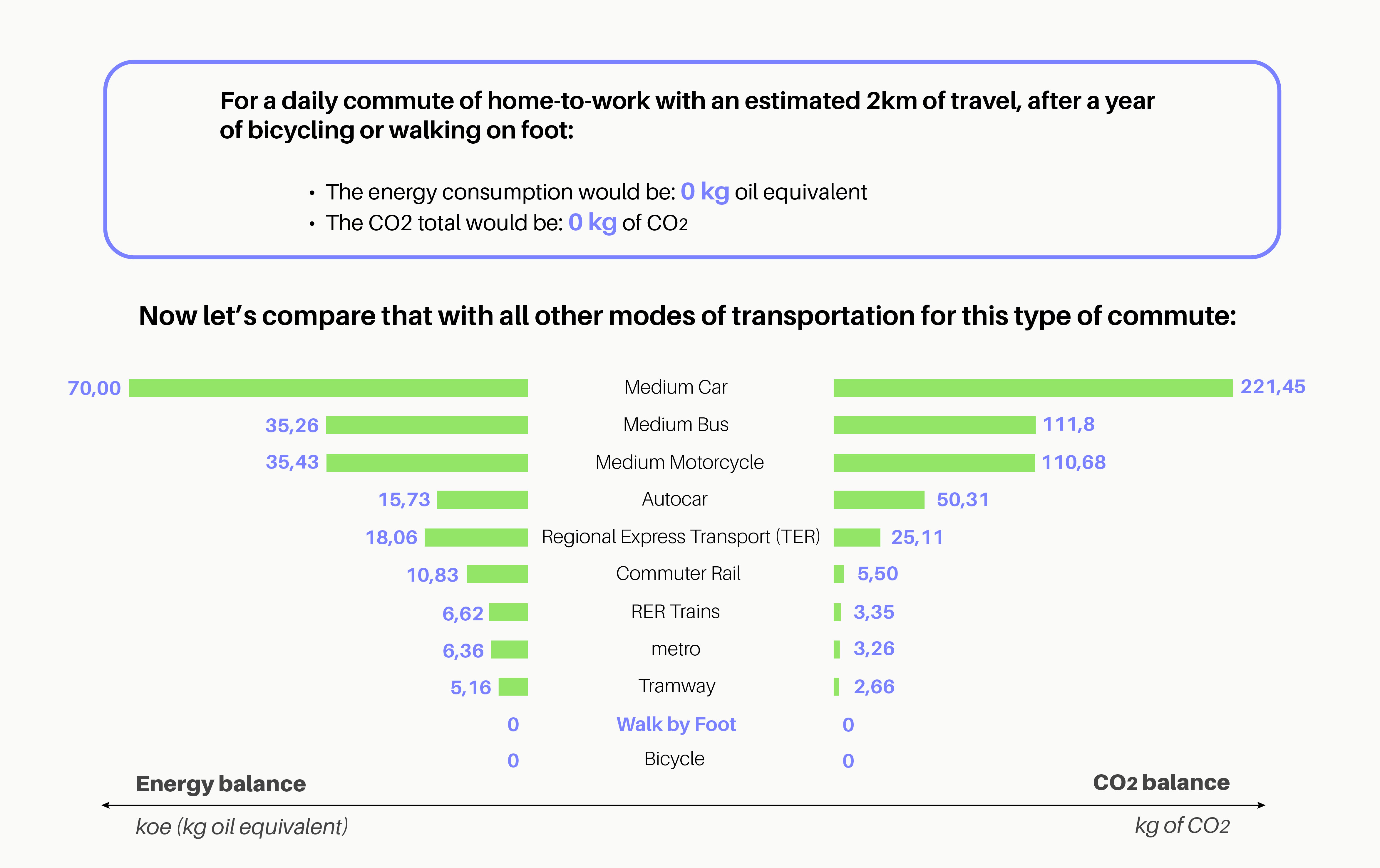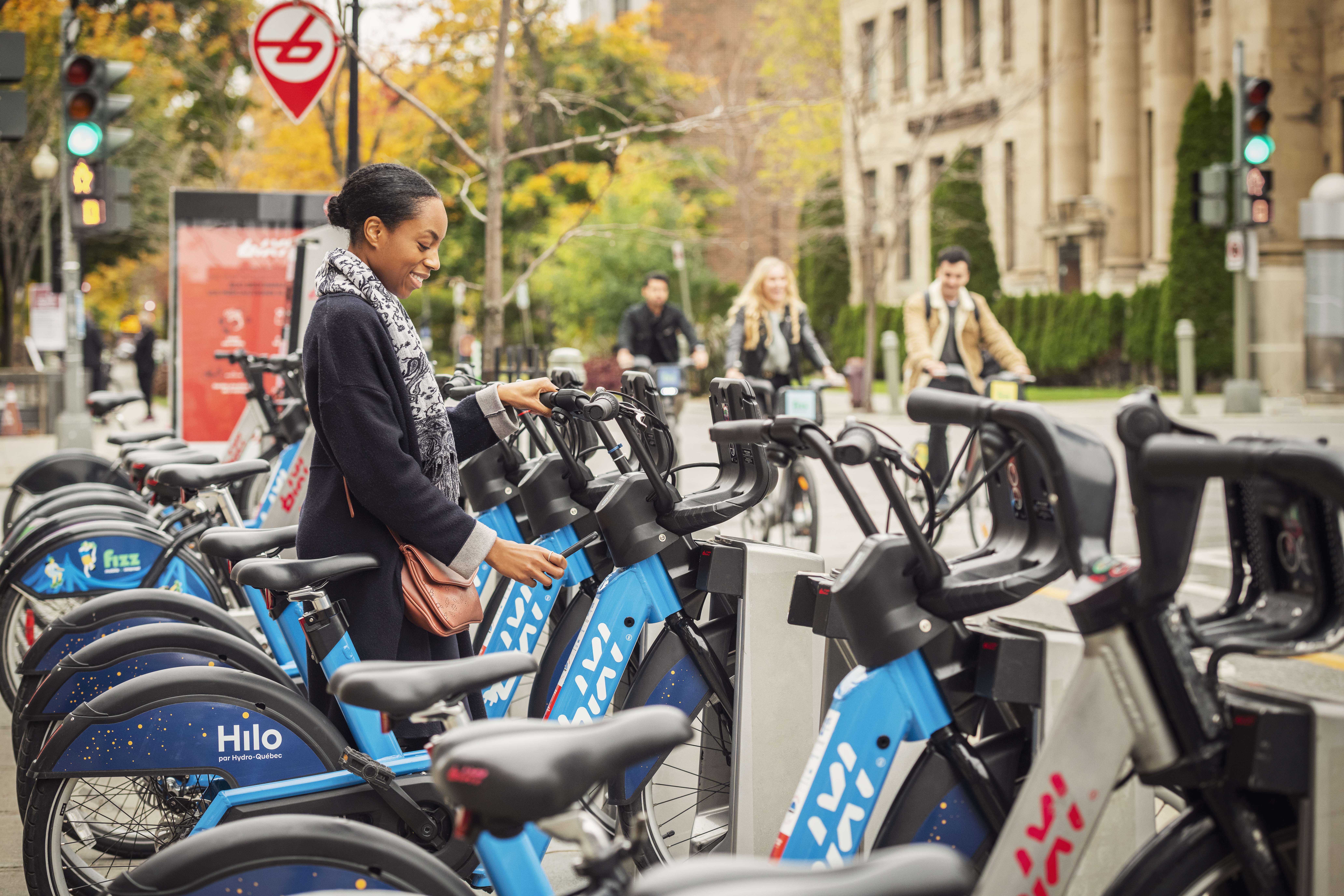
Velocity's commitment resonates with PBSC
June 21, 2024 — PBSC insightsPBSC arrives in Austin, Texas!
Learn morePBSC insights
Bike share explained, from its early beginnings in 1960s Europe to its use in most major cities across the world today.
Urbanization is rapidly growing around the world and has been for many years. Cities are evolving and changing to provide people with the convenience they need. Today, we hear a lot of talk around smart cities and 15-minute cities that support the infrastructure for sustainable growth. In order to make this possible, leading cities with dense populations are re-adapting their infrastructure to encourage greater accessibility, accommodate larger populations without sacrificing quality of living and striving to be more sustainable and environmentally friendly.
We know today that the transport sector and in particular road transport is one of the most polluting sectors in the world. In fact, road transport alone contributes to nearly 30% of global CO2 emissions. The question becomes - what is the future of city transportation? With the advancement of sustainable mobility initiatives, such as car sharing, city bikes vie bike sharing programs, electric assist micromobility like e-bikes and electric scooters and hybrid or fully electric public transit, cities have been rethinking modes of transport. Public bicycle sharing systems are not new, having existed since the 1960s, but they have seen a tremendous surge in popularity and usage within the last decade. After all, bike sharing proposes a sustainable and healthy alternative for the planet and for its inhabitants.
"Micromobility provides a solution"
While there are already many alternatives to the personal automobile, such as public transportation and carpooling, shared micromobility remains one of the most accessible and sustainable means to get around. Micromobility provides a solution that consists in moving around using light vehicles such as shared bikes or scooters that pollute very little to not at all.
According to a study by ADEME, the French agency for ecological transition, for a daily home-to-work trip of 2 kilometers, the car is the most polluting mode of transportation (221 kg of CO2 over one year), followed by the bus and the motorcycle. On the other hand, walking and cycling are the least polluting modes of transport with CO2 emissions of 0 kg.

In urban areas, bicycles, whether shared or not, seem to be the best alternative in response to the climate emergency. Different options are available to residents: buying their own bike, renting a bike on a long-term basis, or using bike-sharing. This last option, which is being developed throughout the world in cities, is practical and very much appreciated by its users, particularly because it offers many advantages.
A bike share program consists of making bicycles and/or electric bicycles available to the inhabitants of a city, so that they can rent a bike for short or longer distances. In particular, shared bikes are used to go to work, the gym, to school, to meet friends, etc. Thus, many stations are strategically distributed throughout the city, i.e. close to the most frequented public places, allowing people to easily and affordably rent and return the bikes from one mobility hub to another. Grabbing a bike from one station and dropping it off at another is as easy as unlocking it with your phone, riding, and simply docking it at a station near your destination. Most bicycle sharing programs are accessible through their own mobile applications.

In order to use a bike share service, users can choose to purchase a subscription and simply grab a bike whenever they need or they can choose to pay at each ride. Although city bike schemes have a cost, they remain a very affordable solution compared to other means of urban transport. When compared, the cost of a bike sharing membership is generally lower than a public transport subscription, and also much cheaper than the purchase and maintenance of a car. In many cities, such as with Montreal’s BIXI bike share program, you can actually use your public transit card to also rent bikes at stations.
But you may wonder why not buy your own bike instead of renting it. Using a bike share program offers a few other advantages in terms of cost and safety. For example, the operator takes care of the maintenance and repair of the bikes. Also, you don't have to worry about the bike being stolen because it doesn't belong to you. That is one less thing to worry about when you know that more than 2 million bikes are stolen every year in North America, that is to say one bike stolen every 30 seconds.
"Riding a bike once a week for a whole year instead of using a car saves half a ton of CO2"
Bike-sharing is above all eco-friendly, as we already know. And to prove this point, you should know that riding a bike once a week for a whole year instead of using a car saves half a ton of CO2, the equivalent of a plane trip from New York to London. Using a bicycle means less air pollution. It also means less noise pollution because the bicycle is less noisy than motor vehicles, which makes the quality of life better in the city. Another advantage that improves the quality of life of urban residents is the reduction of traffic congestion in the city.
The bicycle is an ideal solution for local urban travel. It is considered the most efficient mode of travel for trips of less than 5 km. 40% of daily trips made by car are less than 3 kilometers long. This is simply not sustainable, especially considering that distance can be made more quickly by bicycle than by car during traffic hours, including parking. Also, in the city, the car is still the most common mode of transportation, yet one out of every two trips made is less than 3 km. There remains a major challenge in the market, that of developing the culture of cycling, particularly in cities and for the shortest journeys. We need to look at the example of cities that have taken the initiative, such as Barcelona, London, Toronto and so many others.

Finally, cycling has benefits for your own health. As we know, cycling is physical exercise. According to one study, cycling for 30 minutes a day reduces the risk of diseases such as cardiovascular problems, diabetes, cancer, stress, and other diseases. Moreover, according to other more recent studies, it is now known that riding an power assist electric bike is also a way to exercise. City transportation officials must continue to work with bike share companies to accelerate cycling culture and the use of shared micromobility systems above the personal car. After all, bike share’s advantages make it an incredible long-term investment when it comes to modernizing your city’s urban mobility.
Bike sharing is an affordable and healthy system, both for the planet and for the users. It is a practical solution for people who do not have their own vehicle. Moreover, we now know that cycling is a way to have fun while enjoying a breath of fresh air, to get around more quickly and avoid the stress of traffic jams, to do something for the planet, and to improve your physical condition. All of which is enough to encourage more than one person to adopt a bicycle. Opting for a fleet of self-service bicycles means becoming a more organized and intelligent city, but also offering people an alternative so that they can also have a say in their own carbon footprint.
Many cities around the world have already opted for the implementation of bike-sharing systems, cities like San Sebastian, Quebec, Honolulu, Valencia and many others. In fact, the world map of bike share lists all the bike sharing systems in the world and as we can see, there are many of them, which is why bike sharing is so attractive!

To learn more about PBSC's global impact, smart cities, or to get industry news and updates on technologies and events, sign up for the PBSC newsletter today.

Interested in becoming a local operator or establishing bike sharing in your city?
Contact us at info@pbsc.com